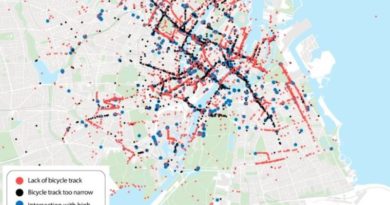Report calls for shared use of cycle networks for bikes and e-Scooters
The London Cycling Campaign (LCC) has called for e-Scooters and other micromobility technologies to be made road-legal, according to strict requirements, and permitted to use cycle tracks.
In a research paper published today (Micromobility and Active Travel in the UK), the LCC suggests catering appropriately for these new personal and freight travel modes, alongside cycling and walking, would help create less polluted and safer streets that urban citizens would want to see post-pandemic.
To maximise the environmental and congestion-beating impact of these new technologies, the LCC is also advocating for a redoubling of programmes to increase protected road space for both cycling and the range of new e-micromobilities which include e-Bikes, e-Scooters and e-Cargo bikes.
Although a trial of shared e-Scooters has been proposed in the UK, they are currently not legal on public footpaths, pavements, bridleways or carriageways. While the LCC welcomes the trials as a step forward, it would like to see the opportunity to try e-Scooters extended beyond the holders of driving licenses, as is currently proposed.
The charity also said it would prefer trials of e-Scooters in London to take place across the capital, or as in as many coherent and continuous boroughs as possible, rather than in ‘patchwork’ boroughs.
The report revealed analysis from averaging worldwide data showed a large shift to e-Scooter use from private vehicles (36%) and walking (37%), with a lower shift from public transport (13%) and cycling (9%). Notably, cycling experienced the lowest of all shifts in all scenarios.
The paper highlights the similarities between bicycles, e-Scooters and e-Bikes in terms of speed and mass – proposing that as small, relatively light and un-enclosed vehicles they all face road danger from cars and lorries, therefore safety gains come collectively by providing segregated space for their use.
The report goes on to suggest that increased use of cycle paths by e-Scooter users could increase pressure on transport authorities to provide appropriate protected space for micromobility users, including those cycling.
The report also touches on the global rise of electric micromobility and increased use of micromobility for freight, as well as how this sector might open up new, safe and equitable infrastructure layout options for the UK, including adjusted planning policies for street design and parking.
In its Climate Safe Streets report published in March, the LCC argued that mass modal shift away from car use to walking, cycling, public transport and new, shared mobility options will be essential to decarbonising the capital’s roads.
The full paper can be downloaded here.



